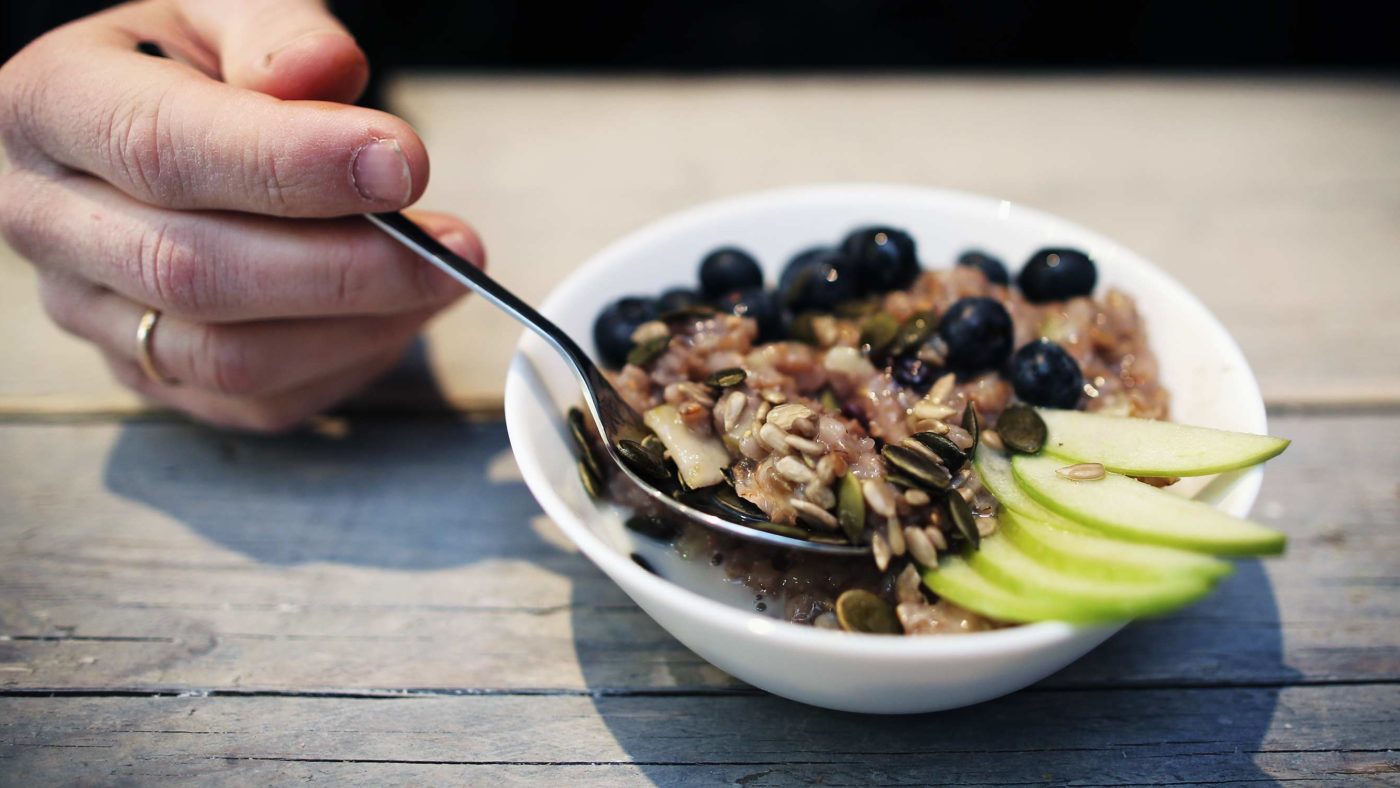“What did you have for breakfast this morning?” That’s something that broadcast media guests get asked surprisingly often. It’s also the reason why Angela Eagle, much to the confusion of Twitter, began an interview about her withdrawal from the 2016 Labour leadership contest by announcing that she’d had porridge that day.
If you’re wondering, the question is a favourite of producers when checking microphone levels. But why not put it to the public?
The latest Number Cruncher polling for CapX has taken a look at Brits’ breakfast preferences. We gave respondents a list of options that we thought would be popular and, for each one, asked whether people had it regularly, occasionally or never.
The most popular item on our menu, eaten regularly by 39 per cent, was toast. Next came porridge (eaten regularly by 26 per cent), corn flakes (18 per cent) and muesli (15 per cent). A relatively high twenty-nine per cent said they regularly eat a cereal that wasn’t individually listed.
But if we consider everyone that answered “regularly” to at least one of the cereal options, cereals generally become the most popular broad category, eaten regularly by 59 per cent. It’s just that there’s a lot of what stats people call heterogeneity in terms of which one.
Among non-cereal options, the most popular was the traditional cooked breakfast (12 per cent), while croissants (nine per cent) and pancakes (eight per cent) brought up the rear. Other types of breakfast were the regular choice of 12 per cent.
Most people tend to vary their breakfast choice – the average respondent selected 1.7 types of breakfast that they eat regularly. This decreases with age, though. Under-25s on average chose 2.5 of the above options, double the figure for pensioners.
But here’s the fun part – who likes what. Breakfast is one area where there are certain stereotypes around individual preferences, just as there are about what type of person drinks each of the various types of coffee. And there is indeed one that looks doubtful straight away.
Muesli has been associated with Corbynism on more than one occasion. In 2015, Boris Johnson branded Jeremy Corbyn a “66-year-old, muesli-munching, sandal-wearing Dave Spart”, while a Labour MP was later quoted as referring to a “muesli-munching, Islington Marxist debating society”.
Well, muesli’s strongest region is indeed London, but if we look at how those who regularly enjoy muesli for breakfast voted in 2017, they actually voted Tory by 45 per cent to 36. So, at the risk of mixing metaphors, Boris Johnson’s muesli munchers could well have been a key ingredient of his donut strategy.
Are Angela Eagle’s politics representative of porridge eaters? It would appear not. Those who enjoy their warm oats regularly are also more Tory (49 per cent) than Labour (37 per cent).
Where Labour does win seems to fit with the more recent stereoptypes in its support. Labour had a 19-point lead among people who eat croissants regularly. Perhaps not coincidentally, the recalled EU referendum vote puts Remain ahead by the same margin among this group.
The most divisive breakfast option (and also the least popular) was pancakes. Labour won regular pancake eaters 62-25, a 37-point margin. As with croissant lovers, the Labour-lean is easily explained by the age groups involved – both are disproportionately university-educated and overwhelmingly young.
The traditional cooked breakfast was by far the most popular to have occasionally, with almost two-thirds (64 per cent) having it from time-to-time. And while Labour led by 14 points among regular eaters of cooked breakfasts, people that make a special treat of it are almost perfectly representative of voters generally – in 2017 they voted Tory by 3 points.
Alongside the aforementioned options, we also asked how often people skipped breakfast altogether. Twenty-one per cent said they did so regularly. This was highest among younger adults, including nearly one-in-three millennials. Fewer than half (44 per cent) said they never skipped breakfast.
Missing breakfast regularly was far more common in London (35 per cent) than any other region, a finding which might fit with busy lifestyles, although there is little to back that up directly. It was also slightly higher among women (23 per cent) than then men (19 per cent), and was higher among the less politically engaged, both people with low political attention and those who don’t vote.
Although polling like this is most obviously fun, it does highlight some serious points (and not just the number of people skipping breakfast). For one, it shows the dilemma pollsters face when categorising options.
Whether Britain’s favourite breakfast is cereal (taking all types of cereal together) or toast (if we split out cereals individually) might not be of much consequence to public policy or political narratives. But it’s not hard to see how similar decisions, for example whether polling on the most important issue should treat the economy as a single lump or whether it should be split into unemployment, inflation, “the economy in general” an so on, actually does matter.
And more significantly, it’s another reminder of how wrong lazy stereotypes can be. If supposedly Marxist muesli munchers are in fact voting Conservative, what other political assumptions are similarly wide of the mark?


